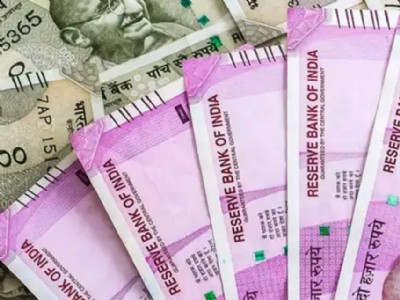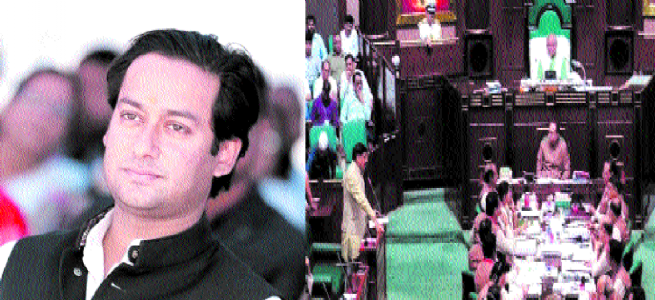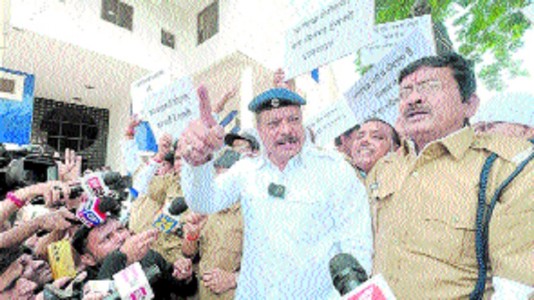Of an eternal icon of the arts
| Date :07-Jan-2020 |
By Vijay Phanshikar :
He is in two modes at once -- talkative and contemplative. He is talking to you, his eyes dancing in joy of frank, friendly, free communication. But at the same time, you realise that his eyes are also looking inward -- somewhere deep within, searching for something, almost as if it is his lifetime’s exploration of self. As you sense this subtle part of his persona, you do not even realise that you are in conversation with Dilip Prabhavalkar, the multi-faceted iconic actor-writer-director of Marathi and Hindi cinema, television, and Marathi theatre.
At seventy-five, his energies are phenomenal, his gestures very vibrant. As night tilts beyond 12 and the world begins slipping into a sleepy mood and mode, his energies are still fountaining from his calm exterior with countless anecdotes from his long, illustrious career that won him countless top honours flowing, almost drowning you in surprise -- and even occasional shock -- about his achievements. Of course, as an actor, he has befriended night as his permanent pal. His art has bloomed and blossomed in her own embrace when the nights flourished into late hours.
So, as the night crosses the 12’O clock rubicon, Dilip Prabhavalkar readies himself almost fully for yet another session. He then slips into recall -- of his prowess as an actor, as a writer, as a director, as a master comedian, and also as a master who could capture the pathos in a mentally-retarded boy’s character and later also that of a father of one such in another outing. Then a slight smile slips from his lips as he talks about Mahatma Gandhi in Lage Raho Munnabhai that won him the Best Supporting Actor Award at the National Film Awards.
The smile continues, though certainly subtly, as the grand old-young man of theatre, cinema, literature talks about his working together with author Ratnakar Matkari, Amitabh Bachchan, Madhuri Dixit, Dadamuni Ashok Kumar plus countless other legendary names that have walked on the artistic stage for the past four decades and more. There also came an honour of Maharashtra Government’s Best Actor Award for his role of a mentally-retarded child in Marathi movie Choukat Raja. The journey has been long, and dotted by terrific milestones.
Not one or two but forty years passed, and the Sangeet Natak Akadami bestowed upon Prabhavalkar its Award for a lifetime of contribution to the fields of theatrical arts. Did you read ‘literature’ in Dilip Prabhavalkar’s description half a minute ago? Yes, you did. Twenty-eight books have flowed from his pen -- and won him several honours, the best being the Sahitya Akadami Award for his children’s book Bokya Saatbande. And of course, he has been writing newspaper column titled Anudini (out of which came a television serial ‘Shriyut Gangadhar Tipre’), plays, and also episodes for television.
And of course one cannot forget his iconic outing in Chimanrao aani Gundyabhau. His three books -- on the humorous side of cricket -- Gugali, Navi Gugali, and How’s That also earned terrific fan following. But then, this is no distinction, so to say. For, each of his 28 books has won Dilip Prabhavalkar tremendous popular appreciation and numerous honours. Very rarely would one come across a person of such a versatility, vitality, virility ...! The conversation continues and drowns you in wave upon wave of deep mental engagement which you might not have experienced for a long time. But even as Dilip Prabhavalkar keeps talking, there is hardly a tone of bragging, self-aggrandisement.
Much to the contrary, most of the talk comes in a matter-of-factly manner, almost in a sage-like disinterest, nonchalance. And it is at this point that the legendary actor is looking inward, howsoever subtly. He is looking at you, talking, smiling, sharing jokes, making you laugh. But even through all that, his eyes are as if looking inward, perhaps engaged in certain self-search that stems from a mind that has seen it all and is not enamoured of the frills and fancies that an illustrious, honour-laden life has brought. What is he looking for in his inner space? -- one wishes to ask. But then, one keeps mum on that. For, perhaps, it may be one area upon which Dilip Prabhavalkar may not want to dwell consciously. For, such searches are often silent, private endeavours, personal encounters with self ...! Even as you struggle to keep shut on that, your mind wanders around Dilip Prabhavalkar’s personality -- as if engaged in investigation into his inner sanctorum.
Are you assigning him too much of a spiritual dimension, your mind asks, but negates the question instantaneously. For, you tell yourself, such a multi-faceted creativity, such an expanded activity of a high intellectual order cannot stem from a materialistically staid mind. You tell yourself, ‘look, such a mind has to have a spiritual bend no matter how much unexpressed’! At this point, you marvel at the mystery you are confronted with about the great thespian’s inner core. And suddenly you get an answer: “I completed as many as 750 shows of my milestone play Hasva Fasvi and stopped suddenly. In fact, it was one play that the writer in me wrote for the actor in me. I played six characters in it -- all in divergence with one another. It was a terrific success for a Marathi play. Yet, I contemplated applying brakes.
It needed so much courage. People called me madcap. But then I thought, ‘why should I wait for others to ask me when I would stop?’ So, instead of waiting for people to ask “when”, I decided to opt for their question, “Why did you?” This is the strong spiritual streak in the man! Very fascinating, very unnerving, too, on another plane! For, very few people have such a mindset, such a courage to stall themselves when in full flight in an endeavour.
That is spirituality! He may seem talkative, but Dilip Prabhavalkar keeps using precise words, perhaps helped by his background of science and a previous job in a pharmaceutical company. There is a pleasant pinpoint to his expression. And you also do not miss a meditative approach to talking. Even in a fast moving sentence, he brakes the flow, waits for the right word, and then proceeds. These pauses, which may be too frequent in the conversation, bring a little time to breathe, to ponder over -- for him and for others. It is well past a bitingly cold midnight. You notice certain calm beginning to envelop the iconic artist’s persona.
His voice is still vibrant, his eyes still in an almost-eternal dance of wistful expression. Is it the time to say ‘Good Night’ and ‘Good-bye’ since he would take a flight out of Nagpur the next morning? Not in the least, says the man who has mesmerised audiences in Maharashtra and India and elsewhere in foreign countries. But then he seems to suggest, almost unwillingly, ‘okay, we may keep something in reserve for the next encounter’. These are no words; these are the emotions of that moment of parting. That is quintessential Dilip Prabhavalkar -- an eternal icon of the arts.







